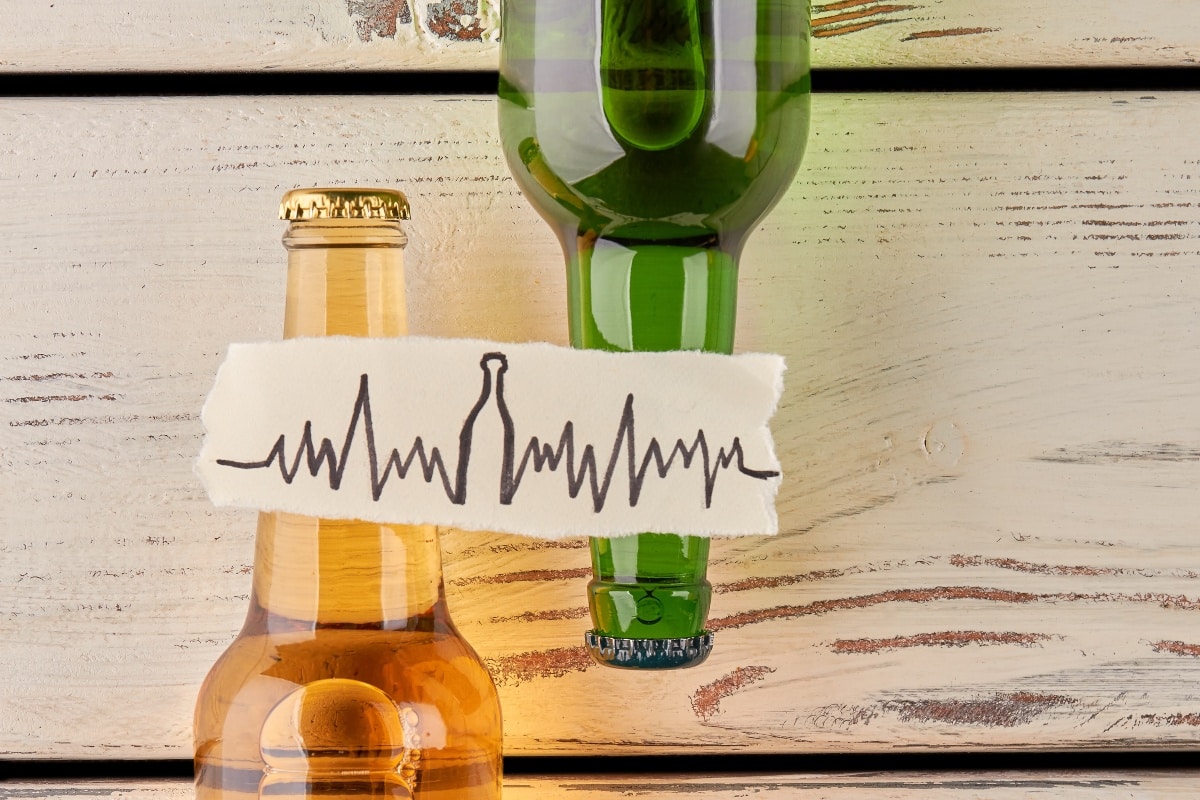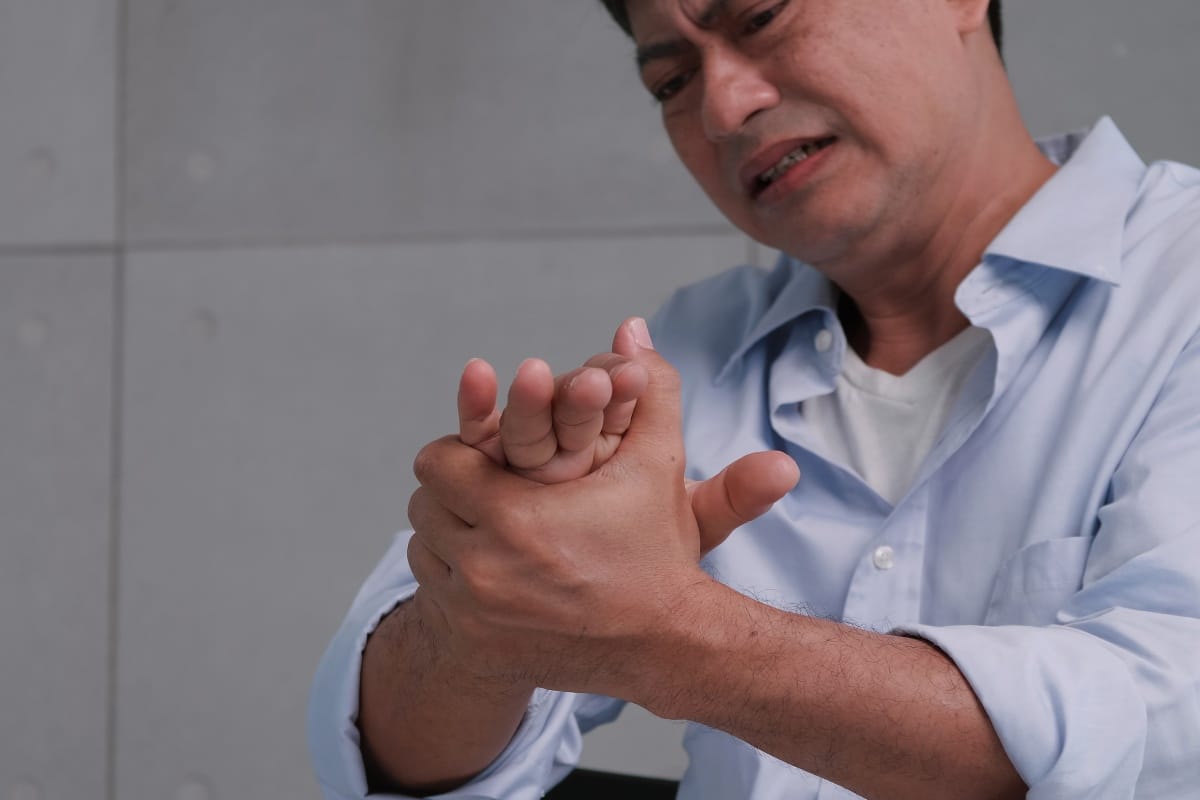
The Types of Alcoholics
According to the National Institute on Alcohol Abuse and Alcoholism in the United States, more than 85 percent of people aged 18 and older drink

According to the National Institute on Alcohol Abuse and Alcoholism in the United States, more than 85 percent of people aged 18 and older drink alcohol. And more than 25 percent of these people report abusing alcohol or binge drinking....
According to the U.S. Department of Health and Human Services, more than 10 million Americans abuse opioids yearly. While this doesn’t mean that they all suffer from an addiction to opioids, many find themselves unable to stop taking the drug...
Delirium tremens (DTs) is a form of withdrawal from alcohol and is often severe if left untreated. If someone who heavily depends on alcohol stops drinking suddenly, they may experience DTs symptoms for 2 to 3 days. The symptoms affect...
Opioid Addiction Treatment Millions of people in the United States are addicted to opioids, often referred to as narcotics. These include prescription pain relievers, such as hydrocodone, oxycodone, tramadol, and fentanyl. The illegal drug heroin is also an opioid. According...
Does alcohol increase blood pressure? This question is common among alcohol addicts or patients prone to blood pressure. Drinking very low levels of alcohol may not cause adverse health effects. However, having repeated excessive alcohol can cause sustained high blood...
Detoxing is the first phase for people planning to quit alcohol abuse successfully. It flushes out toxins from the liver to prepare patients for the next stage of alcohol addiction treatment — behavioral therapy. Although essential, detox can be the...
In 2020, 10% of persons over the age of 12 had alcohol use disorder in the United States. Characterized by excessive alcohol consumption, this condition contributes to various problems. These include chronic disease, injury, violence, economic burden, job loss, and...

According to the National Institute on Alcohol Abuse and Alcoholism in the United States, more than 85 percent of people aged 18 and older drink

Regular drinking—particularly if it is excessive—is very likely to damage a person’s body, regardless of whether they become fully addicted to alcohol. Even moderate drinking can have a negative impact.

According to the U.S. Department of Health and Human Services, more than 10 million Americans abuse opioids yearly. While this doesn’t mean that they all

Delirium tremens (DTs) is a form of withdrawal from alcohol and is often severe if left untreated. If someone who heavily depends on alcohol stops

Alcohol is omnipresent in American society. This can make quitting drinking seem impossible. However, it is possible to quit drinking without resorting to social isolation. We’ll give you some tips on how to quit drinking.

Opioid Addiction Treatment Millions of people in the United States are addicted to opioids, often referred to as narcotics. These include prescription pain relievers, such

Does alcohol increase blood pressure? This question is common among alcohol addicts or patients prone to blood pressure. Drinking very low levels of alcohol may

Detoxing is the first phase for people planning to quit alcohol abuse successfully. It flushes out toxins from the liver to prepare patients for the

Individuals who notice a decrease in interest in things they once enjoyed or experienced pleasure could be struggling with anhedonia. Anhedonia can not only cause this interest loss but can also affect their quality of life.

In 2020, 10% of persons over the age of 12 had alcohol use disorder in the United States. Characterized by excessive alcohol consumption, this condition
New Method Wellness
We firmly believe that the internet should be available and accessible to anyone, and are committed to providing a website that is accessible to the widest possible audience, regardless of circumstance and ability.
To fulfill this, we aim to adhere as strictly as possible to the World Wide Web Consortium’s (W3C) Web Content Accessibility Guidelines 2.1 (WCAG 2.1) at the AA level. These guidelines explain how to make web content accessible to people with a wide array of disabilities. Complying with those guidelines helps us ensure that the website is accessible to all people: blind people, people with motor impairments, visual impairment, cognitive disabilities, and more.
This website utilizes various technologies that are meant to make it as accessible as possible at all times. We utilize an accessibility interface that allows persons with specific disabilities to adjust the website’s UI (user interface) and design it to their personal needs.
Additionally, the website utilizes an AI-based application that runs in the background and optimizes its accessibility level constantly. This application remediates the website’s HTML, adapts Its functionality and behavior for screen-readers used by the blind users, and for keyboard functions used by individuals with motor impairments.
If you’ve found a malfunction or have ideas for improvement, we’ll be happy to hear from you. You can reach out to the website’s operators by using the following email juanita@newmethodwellness.com
Our website implements the ARIA attributes (Accessible Rich Internet Applications) technique, alongside various different behavioral changes, to ensure blind users visiting with screen-readers are able to read, comprehend, and enjoy the website’s functions. As soon as a user with a screen-reader enters your site, they immediately receive a prompt to enter the Screen-Reader Profile so they can browse and operate your site effectively. Here’s how our website covers some of the most important screen-reader requirements, alongside console screenshots of code examples:
Screen-reader optimization: we run a background process that learns the website’s components from top to bottom, to ensure ongoing compliance even when updating the website. In this process, we provide screen-readers with meaningful data using the ARIA set of attributes. For example, we provide accurate form labels; descriptions for actionable icons (social media icons, search icons, cart icons, etc.); validation guidance for form inputs; element roles such as buttons, menus, modal dialogues (popups), and others. Additionally, the background process scans all of the website’s images and provides an accurate and meaningful image-object-recognition-based description as an ALT (alternate text) tag for images that are not described. It will also extract texts that are embedded within the image, using an OCR (optical character recognition) technology. To turn on screen-reader adjustments at any time, users need only to press the Alt+1 keyboard combination. Screen-reader users also get automatic announcements to turn the Screen-reader mode on as soon as they enter the website.
These adjustments are compatible with all popular screen readers, including JAWS and NVDA.
Keyboard navigation optimization: The background process also adjusts the website’s HTML, and adds various behaviors using JavaScript code to make the website operable by the keyboard. This includes the ability to navigate the website using the Tab and Shift+Tab keys, operate dropdowns with the arrow keys, close them with Esc, trigger buttons and links using the Enter key, navigate between radio and checkbox elements using the arrow keys, and fill them in with the Spacebar or Enter key.Additionally, keyboard users will find quick-navigation and content-skip menus, available at any time by clicking Alt+1, or as the first elements of the site while navigating with the keyboard. The background process also handles triggered popups by moving the keyboard focus towards them as soon as they appear, and not allow the focus drift outside of it.
Users can also use shortcuts such as “M” (menus), “H” (headings), “F” (forms), “B” (buttons), and “G” (graphics) to jump to specific elements.
We aim to support the widest array of browsers and assistive technologies as possible, so our users can choose the best fitting tools for them, with as few limitations as possible. Therefore, we have worked very hard to be able to support all major systems that comprise over 95% of the user market share including Google Chrome, Mozilla Firefox, Apple Safari, Opera and Microsoft Edge, JAWS and NVDA (screen readers), both for Windows and for MAC users.
Despite our very best efforts to allow anybody to adjust the website to their needs, there may still be pages or sections that are not fully accessible, are in the process of becoming accessible, or are lacking an adequate technological solution to make them accessible. Still, we are continually improving our accessibility, adding, updating and improving its options and features, and developing and adopting new technologies. All this is meant to reach the optimal level of accessibility, following technological advancements. For any assistance, please reach out to juanita@newmethodwellness.com